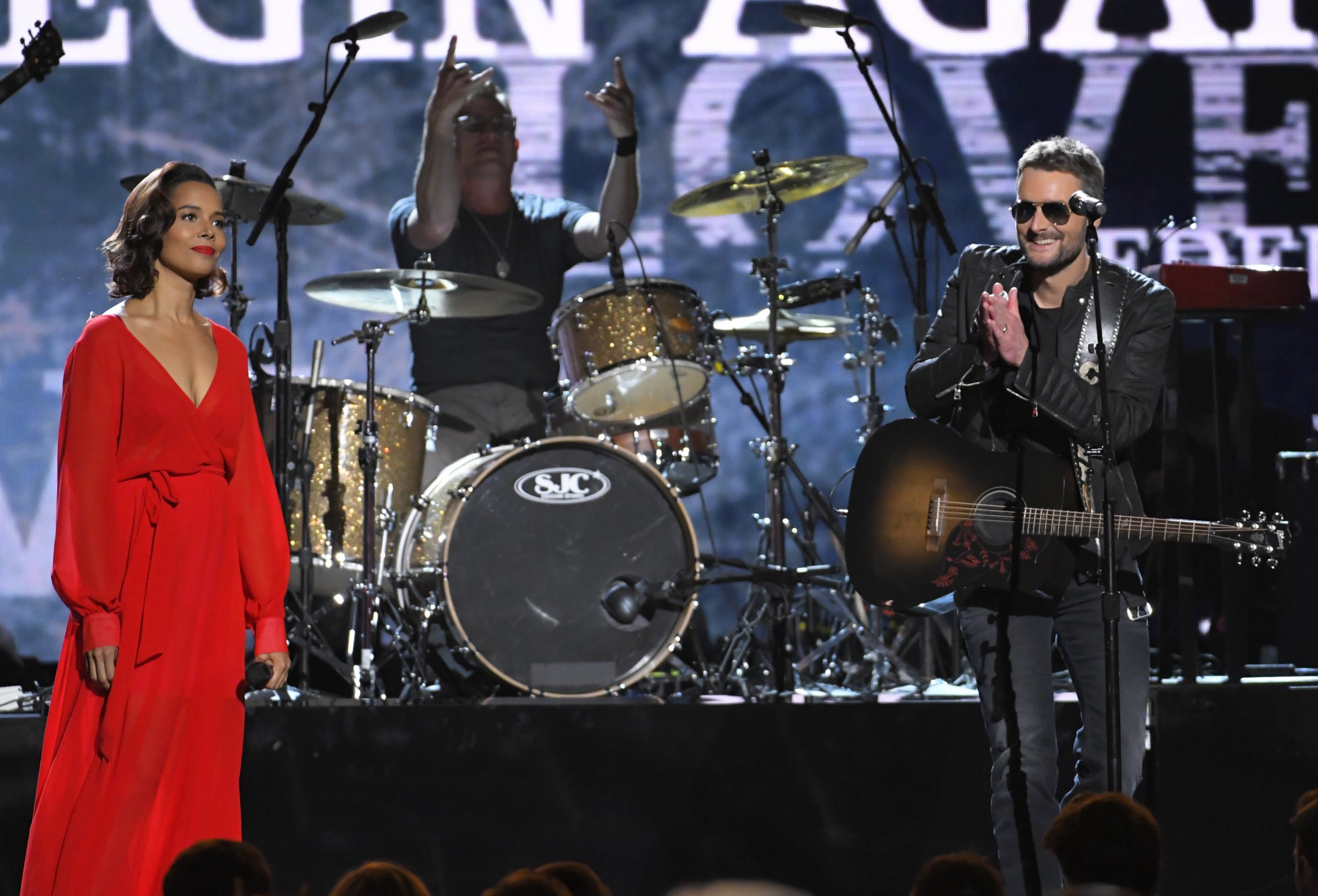
A painter who visualizes the "complexities of globalization." A historian of "transnational migration." An anthropologist who works to expose the "the human consequences of immigration policy at the U.S.–Mexico border." A Muslim-American community leader who "bridges race, class, and religion."
These are just a few of the first MacArthur "genius grant" recipients under Donald Trump's presidency.
Every year, the MacArthur Foundation anoints a couple dozen fellows in a variety of fields and gives them a $625,000, no-strings-attached grant over five years to continue their work or just buy a car.
It's a tradition that dates back to the early 1980s. And nothing in this year's announcement suggested any spin against the current American government. But this year's list of 24 winners seems especially in tune with a era in need of social justice.
"From transforming conditions for low-wage workers to identifying internet security vulnerabilities, from celebrating the African American string band tradition to designing resilient urban habitats, these new MacArthur Fellows bring their exceptional creativity to diverse people, places, and social challenges," said Cecilia Conrad, the managing director of the MacArthur Fellows Program. "Their work gives us reason for optimism and inspires us all."
And the winners are (with explanation by the John D. and Catherine T. MacArthur Foundation):
Njideka Akunyili Crosby, painter
"Visualizing the complexities of globalization and transnational identity in works that layer paint, photographic imagery, prints, and collage elements."
Sunil Amrith, historian
"Illustrating the role of centuries of transnational migration in the present-day social and cultural dynamics of South and Southeast Asia."
Greg Asbed, human rights strategist
"Transforming conditions for low-wage workers with a visionary model of worker-driven social responsibility."
Annie Baker, playwright
"Mining the minutiae of how we speak, act, and relate to one another and the absurdity and tragedy that result from the limitations of language."
Regina Barzilay, computer scientist
"Developing machine learning methods that enable computers to process and analyze vast amounts of human language data."
Dawoud Bey, photographer and educator
"Using an expansive approach to photography that creates new spaces of engagement within cultural institutions, making them more meaningful to and representative of the communities in which they are situated."
Emmanuel Candès, mathematician and statistician
"Exploring the limits of signal recovery and matrix completion from incomplete data sets with implications for high-impact applications in multiple fields."
Jason De León, anthropologist
"Combining ethnographic, forensic, and archaeological evidence to bring to light the human consequences of immigration policy at the U.S.–Mexico border."
Rhiannon Giddens, singer/songwriter
"Reclaiming African American contributions to folk and country music and bringing to light new connections between music from the past and the present."
Nikole Hannah-Jones, journalist
"Chronicling the persistence of racial segregation in American society, particularly in education, and reshaping national conversations around education reform."
Cristina Jiménez Moreta, social justice organizer
"Changing public perceptions of immigrant youth and playing a critical role in shaping the debate around immigration policy."
Taylor Mac, theater artist
"Engaging audiences as active participants in works that dramatize the power of theater as a space for building community."
Rami Nashashibi, community leader
"Confronting the challenges of poverty and disinvestment in urban communities through a Muslim-led civic engagement effort that bridges race, class, and religion."
Viet Thanh Nguyen, writer and cultural critic
"Challenging popular depictions of the Vietnam War and exploring the myriad ways that war lives on for those it has displaced."
Kate Orff, landscape architect
"Designing adaptive and resilient urban habitats and encouraging residents to be active stewards of the ecological systems underlying our built environment."
Trevor Paglen, artist and geographer
"Documenting the hidden operations of covert government projects and examining the ways that human rights are threatened in an era of mass surveillance."
Betsy Levy Paluck, psychologist
"Unraveling how social networks and norms influence our interactions with one another and identifying interventions that can change destructive behavior."
Derek Peterson, historian
"Reshaping our understanding of African colonialism and nationalism in studies that foreground East African intellectual production."
Damon Rich, designer and urban planner
"Creating vivid and witty strategies to design and build places that are more democratic and accountable to their residents."
Stefan Savage, computer scientist
"Identifying and addressing the technological, economic, and social vulnerabilities underlying internet security challenges and cybercrime."
Yuval Sharon, opera director/producer
"Expanding how opera is performed and experienced through immersive, multisensory, and mobile productions that are infusing a new vitality into the genre."
Tyshawn Sorey, composer and musician
"Assimilating and transforming ideas from a broad spectrum of musical idioms and defying distinctions between genres, composition, and improvisation in a singular expression of contemporary music."
Gabriel Victora, immunologist
Investigating acquired, or adaptive, immunity and the mechanisms by which organisms' antibody-based responses to infection are fine-tuned."
Jesmyn Ward, author
"Exploring the enduring bonds of community and familial love among poor African Americans of the rural South against a landscape of circumscribed possibilities and lost potential."
Uncommon Knowledge
Newsweek is committed to challenging conventional wisdom and finding connections in the search for common ground.
Newsweek is committed to challenging conventional wisdom and finding connections in the search for common ground.
About the writer
Educated at the Sorbonne and MIT, Gersh Kuntzman is obviously not the person being described here. The Gersh Kuntzman in ... Read more
To read how Newsweek uses AI as a newsroom tool, Click here.








